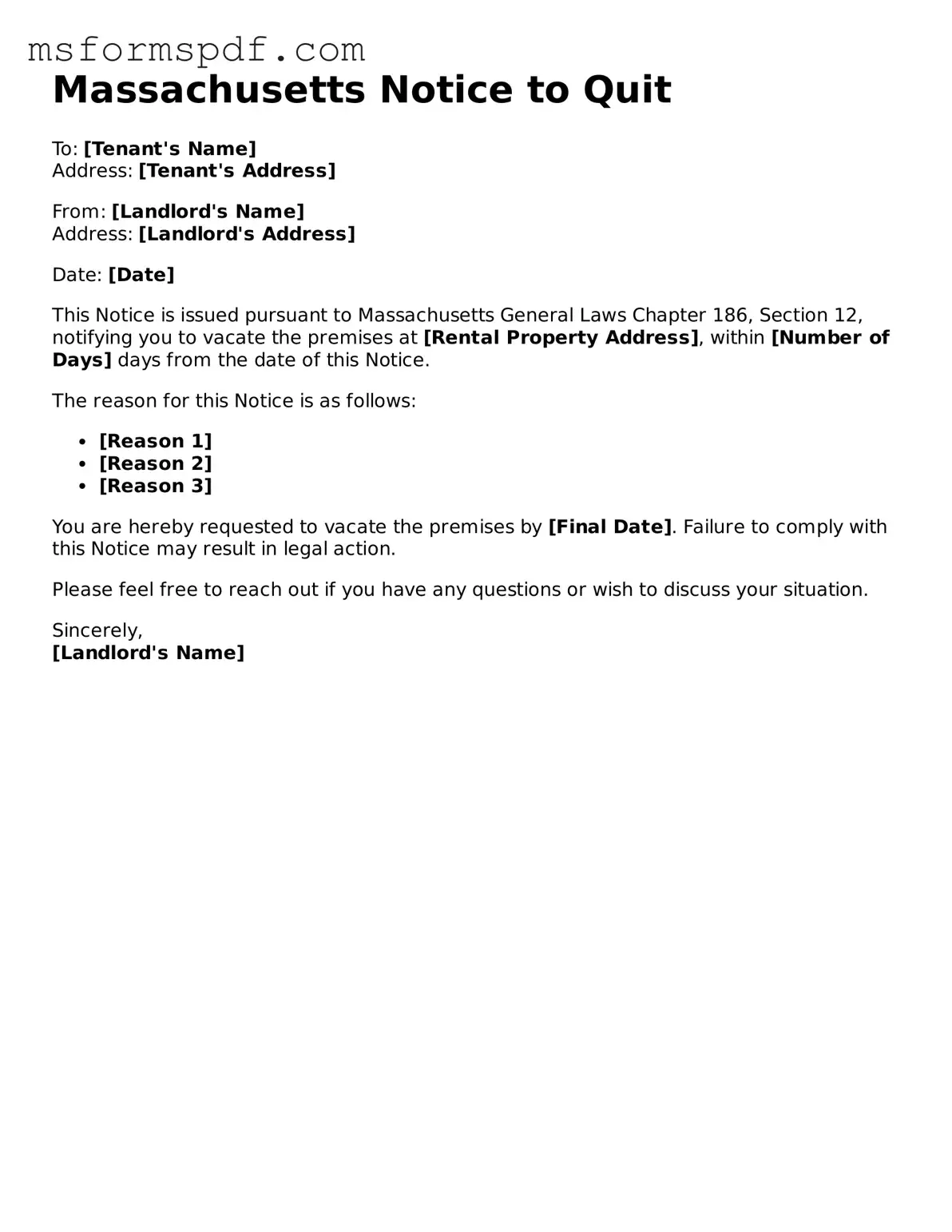Blank Massachusetts Notice to Quit Document
The Massachusetts Notice to Quit form is a legal document used by landlords to formally notify tenants that they must vacate the rental property. This notice is a crucial step in the eviction process, providing tenants with a specified timeframe to leave. Understanding this form is essential for both landlords and tenants to ensure compliance with state laws and to protect their rights.
Launch Editor Now

Blank Massachusetts Notice to Quit Document
Launch Editor Now

Launch Editor Now
or
➤ Notice to Quit PDF Form
Just a moment — finish the form
Fill out Notice to Quit digitally — no scanning, no printing.